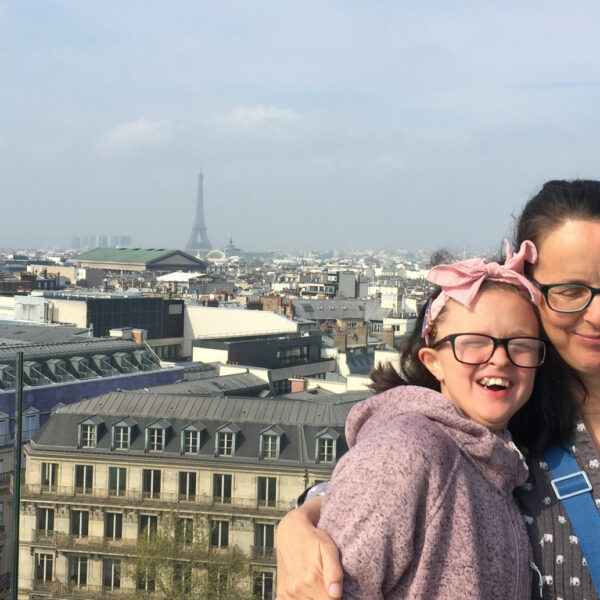Developmental Coordination Disorder (DCD) or Dyspraxia
Information and signposting for parent carers of a child or young person with developmental coordination disorder, sometimes called dyspraxia.
What is DCD or dyspraxia?
Dyspraxia or developmental co-ordination disorder (DCD) is a lifelong neurodevelopmental difference that affects movement and co-ordination.
Though dyspraxia/DCD does not affect intelligence, people with the condition may find it harder to acquire practical skills than their peers. They may have difficulties with planning and organisation (often called executive function), or with communication skills. Dyspraxic children and young people often need extra support or specific equipment to make progress in school.
According to the University of Edinburgh, 1 in 20 children have DCD. Boys are three or four times more likely to get a diagnosis – though evidence is emerging that this gap may be due to failures to recognise the different ways girls manage their DCD/dyspraxia, or the expectations society has of the different genders.
Many children with DCD show sensory processing differences. Some children with dyspraxia/DCD may have other conditions, such as autism, ADHD, or dyslexia.
Characteristics of DCD or dyspraxia?
Every child or young person’s experience of dyspraxia/DCD will be different and is likely to be affected by their age, the opportunities they have had to learn skills, their environment and the support they get. These, however, are the common signs of dyspraxia/DCD.
Difficulties with movement and co-ordination
- They may be slower to crawl, sit or walk than other young children
- Movements may appear clumsy or awkward
- They may find it hard to acquire practical/physical skills such as skipping, throwing/catching a ball or using cutlery, which their peers seem to learn easily
- Pencil grip may be poor and writing may be slow and immature.
- Have frequent accidents and injuries
- May struggle to understand spatial concepts such as on/under/over/in front of
Dyspraxic people’s difficulties with movement and co-ordination are thought to come from differences in the way they process information from their senses, particularly via ‘hidden’ senses called proprioception, interoception and the vestibular system.
Proprioception is the sense that tells the body where it is in space and lets us know where our different body parts are, how they move and how much strength our muscles need to use.
Interoception is the sense that tells us what is happening inside our bodies (growling stomach, full bladder, etc.) and prompts feelings that make us to eat or go to the loo.
The vestibular system tells us how we are moving via senses in our ears; it controls our sense of balance, gravity and speed of movement.
Because of issues with these hidden senses, children and young people with dyspraxia/DCD may also have difficulties recognising and regulating their emotions.
Organisation and planning
Children with DCD/dyspraxia may have difficulties with:
- concentration and memory
- difficulties with processing verbal and written instructions
- time management
Speech and language
Some children with DCD/dyspraxia may have
- problems with co-ordinating movements to make speech sounds – this is known as verbal dyspraxia
- and difficulties keeping up with conversation
Unsurprisingly, given the frustration they may feel struggling to keep up with their peers, or issues with understanding and managing emotions, children and young people with dyspraxia/DCD may also suffer from low self-esteem or have difficulties maintaining friendships.
Don’t be too disheartened though. With time, practice and the right support, most dyspraxic children and young people go on to acquire the physical skills they want and need, albeit a bit later. And though they will continue to be affected as adults, the spotlight that school throws on co-ordination skills fades, and they may go on to develop surprising interests in sport or crafts or music, once free of the pressure and at their own pace.
Diagnosis
Children are unlikely to be assessed or diagnosed with dyspraxia/DCD until after they have started school. This is because the rates at which all children develop vary so widely that it’s hard to identify delays or differences until they are a bit older. Exceptions to this are when a health visitor or other professional flags up speech and language or coordination issues early on.
If you suspect your child or young person has dyspraxia/DCD, speak to their class teacher, school SENCO, or your GP. The school should already be aware of the issues and they can refer you to the local child development service where your child will be assessed by health professionals such as a paediatrician, educational psychologist or occupational therapist.
What can help?
There is no ‘cure’ for dyspraxia/DCD but the following things can all help:
- Equipment and gadgets – writing slopes, pencil grips or self-opening scissors can all help with handwriting and schoolwork. At home you may want to invest in things like elastic laces and waistbands to make dressing easier. And fidget toys or sensory swings can help children to de-stress and exercise their motor skills.
- Non-competitive exercise – it’s very easy for dyspraxic children and young people to become disengaged from sport, but finding a physical activity they like that doesn’t force them to compete with their peers can really help with their self-esteem and fitness level. Activities such as kung fu, kayaking, climbing or trampolining are great, and will help them to develop muscle tone and co-ordination without the pressure of a team or race.
- Reasonable adjustments – at school, dyspraxic children and young people should be able to use a laptop if they struggle with handwriting and get extra time for their exams. Some schools offer touch typing lessons too. Speak to your child’s teacher or SENCO about this.
- Occupational Therapy (OT) – can help with daily living activities such as dressing, self-feeding and with skills such as handwriting, either by suggesting exercises, equipment or adaptations.
- Physiotherapy – this can be useful if a child needs support with their posture and gross motor skills. The physiotherapist will do an assessment and devise a therapy plan to improve their skills.
- Speech and Language Therapy (SALT) – this can be useful in helping children with producing speech sounds and in the movement of their tongue and lips to help with the clarity of their speech if this is an issue.
In addition to all these practical solutions, remember that patience and understanding are really important too. Try not to compare your child with their friends but with what they could do last year or further back. Also, remind yourself how much extra effort they have to put into doing things others find easy, so they are abound get tired and frustrated. Encourage them to find things they enjoy that will allow them to experience success – this will help to help build their self-esteem.
Getting help from Amaze
Amaze ND Family Support is for parent carers with a child or young person who is at any point along the assessment pathway for a neurodevelopmental difference such as dyspraxia, autism and ADHD. You can get advice and guidance right from when a problem is first flagged, through assessment, diagnosis (or otherwise) and beyond. We also run parent support groups across Brighton & Hove and East Sussex.
For impartial information, advice and support on education, health, social care and disability related benefits, contact our SENDIASS advice line.
If your child or young person’s needs mean that they need much more care than other people of the same age, you might wish to consider applying for Disability Living Allowance for under 16s, or Personal Independence Payment for over 16s. You can apply, even if your child or young person does not have a diagnosis.
Further information
- Dyspraxia Collective – hosts a range of information sheets from the recently closed Dyspraxia Foundation.
- Local Offer – the local authority’s online listing of all the services and support for families with children with SEND in the area. See East Sussex Local Offer or Brighton & Hove Local Offer.
- NHS website – detailed online advice about dyspraxia in children and young people
- Sue Allan sensory minis – short Youtube animations about sensory systems
- Dypraxia UK – private Facebook group for adults with dyspraxia or for parents and carers of children with dyspraxia
- Movement Matters – What is Developmental Coordination Disorder / Dyspraxia – Movement Matters webpage with downloadable guides for parents, teachers, etc.






